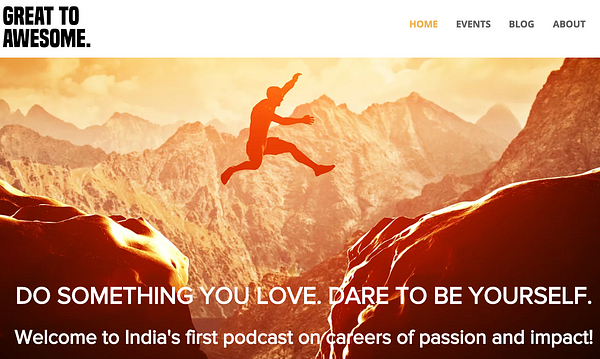Amidst the angst over civilization’s internal combustion, there’s at least one line from the song “Creature Comfort” that I find myself turning over in my mind in the context of our current work at Shortlist:
“Born in a diamond mine / It’s all around you but you can’t see it / Born in a diamond mine / It’s all around you but you can’t touch it”
In Africa, there is a huge untapped talent mine hiding in plain sight (and that is absolutely not a reference to the troubling history of extractive industries in Africa). On the continent, we’re on the cusp of likely the greatest talent explosion in the history of humankind.
By 2030, the working age population across Africa is set to grow from 370 million to over 600 million, expanding the workforce by more than the rest of the world combined over that time period. Yes, combined.
For the continent to fully benefit from this incredible potential opportunity, it will require (1) a massive increase in the availability of good jobs, (2) an education and skilling infrastructure primed to prepare individuals for those jobs, and (3) a better way of matching talent and opportunity.
There is a gaping hole between the number of people seeking work, and the number of jobs actually available. And there’s a growing mismatch between the skills young people have today and the skills that employers are demanding. This is increasingly being identified by business leaders, politicians, policy wonks and philanthropists as *the* issue to solve in Africa.
At Shortlist, I’m not sure we can do much about creating great new jobs at scale; that’s probably the domain of big business, government and policymakers. It’s a huge multi-headed problem with no easy answer, for sure. But I do believe we can use new approaches to education, skills development, and opportunity-matching to prepare the kind of ready-to-rock talent pools that can, over time, attract the kind of large scale job creation we need. In other words, maybe we can create pockets of reversed chicken-vs-egg causality, where creating talent pools of skilled and ready young professionals can attract more companies, bigger investment, and better jobs.
So what’s going to be key to unlocking this talent and laying bare the incredible talent bounty of the continent?
Improve learning
Gone are the days where we could rely on high school and university to prepare people for the modern workplace. As Ryan Craig writes in his new book, the future of higher education lies in faster, better, and/or cheaper alternatives to higher education. These alternatives need to be affordable; geared towards skills of the future (like tech and data); geared toward competencies and practice rather than theoretical subject matter. Technical programs like those offered by Moringa School or courses on soft skills (like communication, problem-solving and teamwork) like those now offered by Shortlist show new ways that practical learning can be fostered outside of traditional, long-term and expensive higher ed options.
Promote discovery
Part of the problem is that young professionals often don’t know yet what they’re passionate about, don’t yet know what they’re good at (or could be good at), and don’t know what the market wants/expects. Students are often slotted into courses of study very early and in a manner dictated more so by society and family (whose mom hasn’t wanted them to be a doctor at some point??) than informed personal decision-making. (And to be clear, this certainly isn’t only an issue in Africa…)
We can use tech and digital distribution to expose young people to the range of professional options out there and provide tools for self-discovery and opportunity discovery — and in so doing, also get to know job-seekers better. Think: the right podcasts/videos/posts targeted to the right people at the right time, with a feedback loop to gather data points on interests, engagement, motivation, and learning velocity. We can then start to engage and curate pools of talent based on genuine interest and ability rather than meaningless demographics, and we can tailor content and training opportunities to the particular passions and abilities of specific jobseekers.
Help companies see better
Back to the original conceit: “It’s all around you but you can’t see it.” Part of this issue is that talent is there, we just lack the tools to see it. If your criteria for “work-readiness” revolves around a prestigious tertiary degree, time served at a Big 3 consultancy or Big 4 accounting firm, and lots of acronyms — well, you may not find enough professionals to build your company. If, however, you are open to professionals who possess the skills and/or raw ability to succeed, the talent is often there, but the tools of finding and seeing it are lacking.
Our approach at Shortlist collects and analyzes data points on demonstrations of competency, skill and motivation, so that we can X-ray vision the CV and see who has the stuff of success regardless of credential. Of course this approach works better for some roles than others, but broadly we believe that employers in or coming to Sub-Saharan Africa will need to think differently about assessing talent, relying on underlying competencies and skills and not fancy gold stars, if they are going to find the folks they need to grow.
Needless to say, this will NOT be easy. It will take the efforts and energy of a diverse set of stakeholders, sometimes working together and sometimes in parallel, to realize this promise. Most importantly, it will be driven by and depend on the energy of this emerging workforce to go out and grab these opportunities and create even more opportunities themselves.
All things considered, though, we’re choosing to stay optimistic about the road ahead, despite the significant challenges — and no matter what Arcade Fire thinks.






































